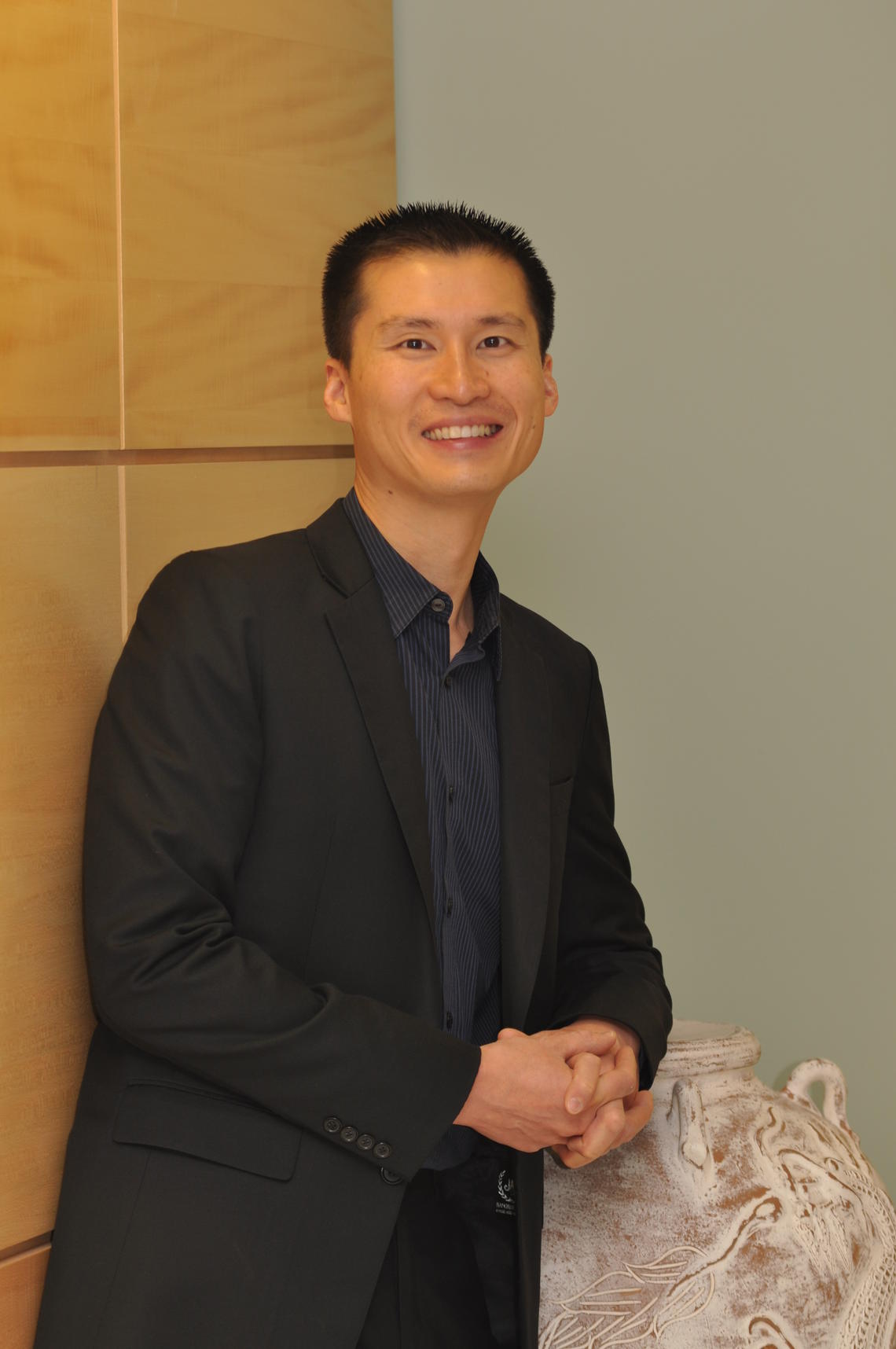
Dr. Daniel Heng is a clinical associate professor in the Department of Oncology.
Bruce Perrault, University of Calgary
Nov. 3, 2015

Dr. Daniel Heng is a clinical associate professor in the Department of Oncology.
Bruce Perrault, University of Calgary
It doesn’t take much for Dr. Daniel Heng to silence the room at a party. All he has to do is tell people he’s a medical oncologist.
“People will say to me, ‘Oh that’s so horrible, you must be really sad’,” he says, “but it’s completely the opposite. I love working with, and getting to know, my patients. It’s a true honour to walk with them on their journeys.”
With a special interest in renal cell carcinoma, or kidney cancer, Heng, a clinical associate professor in the Department of Oncology at the university’s Cumming School of Medicine, balances his work life between seeing patients and conducting research.
As one of the top 10 most common cancers, the disease has experienced a renaissance in the past seven years. He says there have been several new treatment options available that not only significantly increase lifespan but improve overall quality of life.
“This is an exciting field that changes very quickly,” he says. “And whenever there’s big change, there’s always research to do around it to find out: how helpful is this change, what impact has this change had on prognosis, how can this change be better in the future?’”
However, that research can be a particularly challenging undertaking. Even as a common cancer, the number of affected individuals is relatively small to conduct meaningful, impactful research. After identifying the need for worldwide collaboration, and motivated to answer patient questions he just didn’t have answers to, Heng created the International Metastatic Renal Cell Carcinoma Database Consortium (IMDC).
Since its inception in 2007, the database has grown to house the information of approximately 4,800 kidney cancer patients across 28 centres worldwide. It’s used by oncologists and researchers to inform clinical trials and studies, and to determine the best treatment option for patients.
Through the database, Heng was also able to develop a prognostic tool, known as the Heng Criteria, which can be used to better help predict future outcomes of those affected by the disease.
The success of the IMDC has motivated Heng to now expand the database to include a tumour repository to coincide with the clinical data, which he hopes will allow for the development of tests to identify biomarkers, thereby leading to new treatment options for patients.
“It’s a wonderful feeling to know that we have the ability to find out the answers to these questions that bug us all the time,” he says. “Because of the database, we now have sufficient numbers to do so in a robust manner.”
At only 36 years old, and with a family he loves dearly, Heng has career achievements that earned him a spot on this year’s Top 40 Under 40 list, published by Avenue magazine. While he still doesn’t know who sent in the nomination, and believes it will be a secret that he’ll never know, he says it feels great to be recognized. “To whoever nominated me, thank you. It’s a huge honour," he says.
Along with Heng, nine other University of Calgary employees were recognized in this year’s Top 40 Under 40. They are: